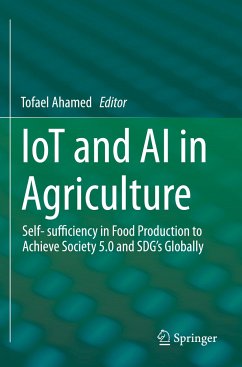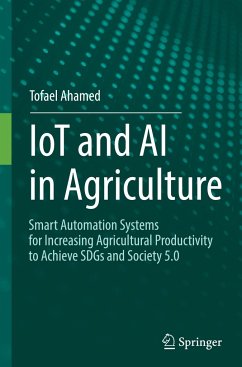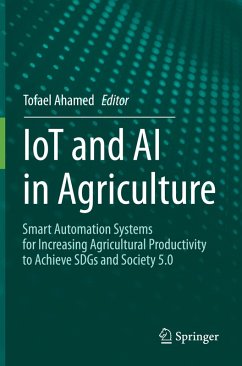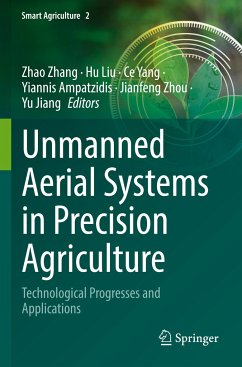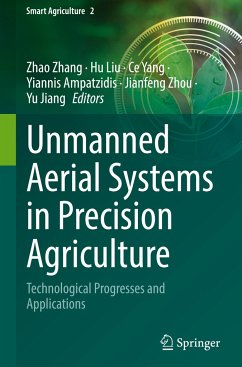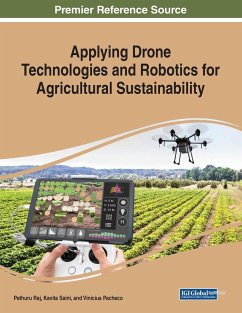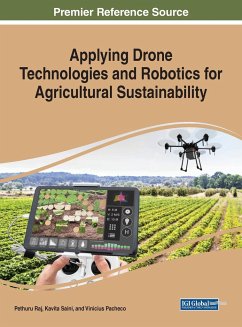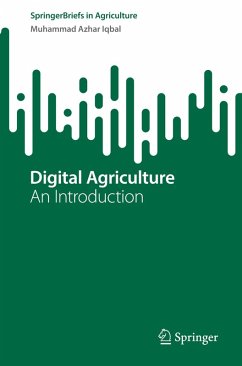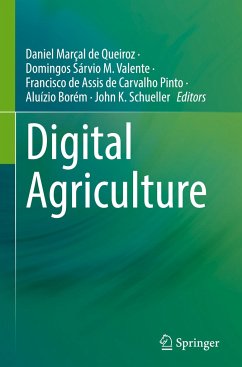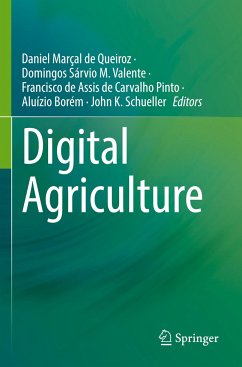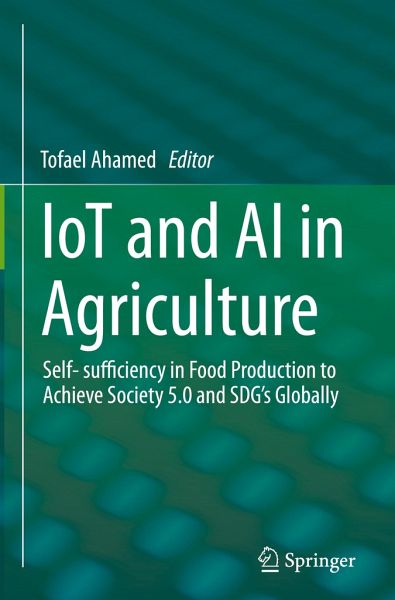
IoT and AI in Agriculture
Self- sufficiency in Food Production to Achieve Society 5.0 and SDG's Globally
Herausgegeben: Ahamed, Tofael

PAYBACK Punkte
70 °P sammeln!
This book reviews recent innovations in the smart agriculture space that use the Internet of Things (IoT) and sensing to deliver Artificial Intelligence (AI) solutionsto agricultural productivity in the agricultural production hubs. In this regard, South and Southeast Asia are one of the major agricultural hubs of the world, facing challenges of climate change and feeding the fast-growing population. To address such challenges, a transboundary approach along with AI and BIG data for bioinformatics are required to increase yield and minimize pre- and post-harvest losses in intangible climates t...
This book reviews recent innovations in the smart agriculture space that use the Internet of Things (IoT) and sensing to deliver Artificial Intelligence (AI) solutionsto agricultural productivity in the agricultural production hubs. In this regard, South and Southeast Asia are one of the major agricultural hubs of the world, facing challenges of climate change and feeding the fast-growing population. To address such challenges, a transboundary approach along with AI and BIG data for bioinformatics are required to increase yield and minimize pre- and post-harvest losses in intangible climates to drive the sustainable development goal (SDG) for feeding a major part of the 9 billion population by 2050 (Society 5.0 SDG 1 & 2). Therefore, this book focuses on the solution through smart IoT and AI-based agriculture including pest infestation and minimizing agricultural inputs for in-house and fields production such as light, water, fertilizer and pesticides to ensure food security aligns with environmental sustainability. It provides a sound understanding for creating new knowledge in line with comprehensive research and education orientation on how the deployment of tiny sensors, AI/Machine Learning (ML), controlled UAVs, and IoT setups for sensing, tracking, collection, processing, and storing information over cloud platforms for nurturing and driving the pace of smart agriculture in this current time.
The book will appeal to several audiences and the contents are designed for researchers, graduates, and undergraduate students working in any area of machine learning, deep learning in agricultural engineering, smart agriculture, and environmental science disciplines. Utmost care has been taken to present a varied range of resource areas along with immense insights into the impact and scope of IoT, AI and ML in the growth of intelligent digital farming and smart agriculture which will give comprehensive information to the targeted readers.
The book will appeal to several audiences and the contents are designed for researchers, graduates, and undergraduate students working in any area of machine learning, deep learning in agricultural engineering, smart agriculture, and environmental science disciplines. Utmost care has been taken to present a varied range of resource areas along with immense insights into the impact and scope of IoT, AI and ML in the growth of intelligent digital farming and smart agriculture which will give comprehensive information to the targeted readers.



